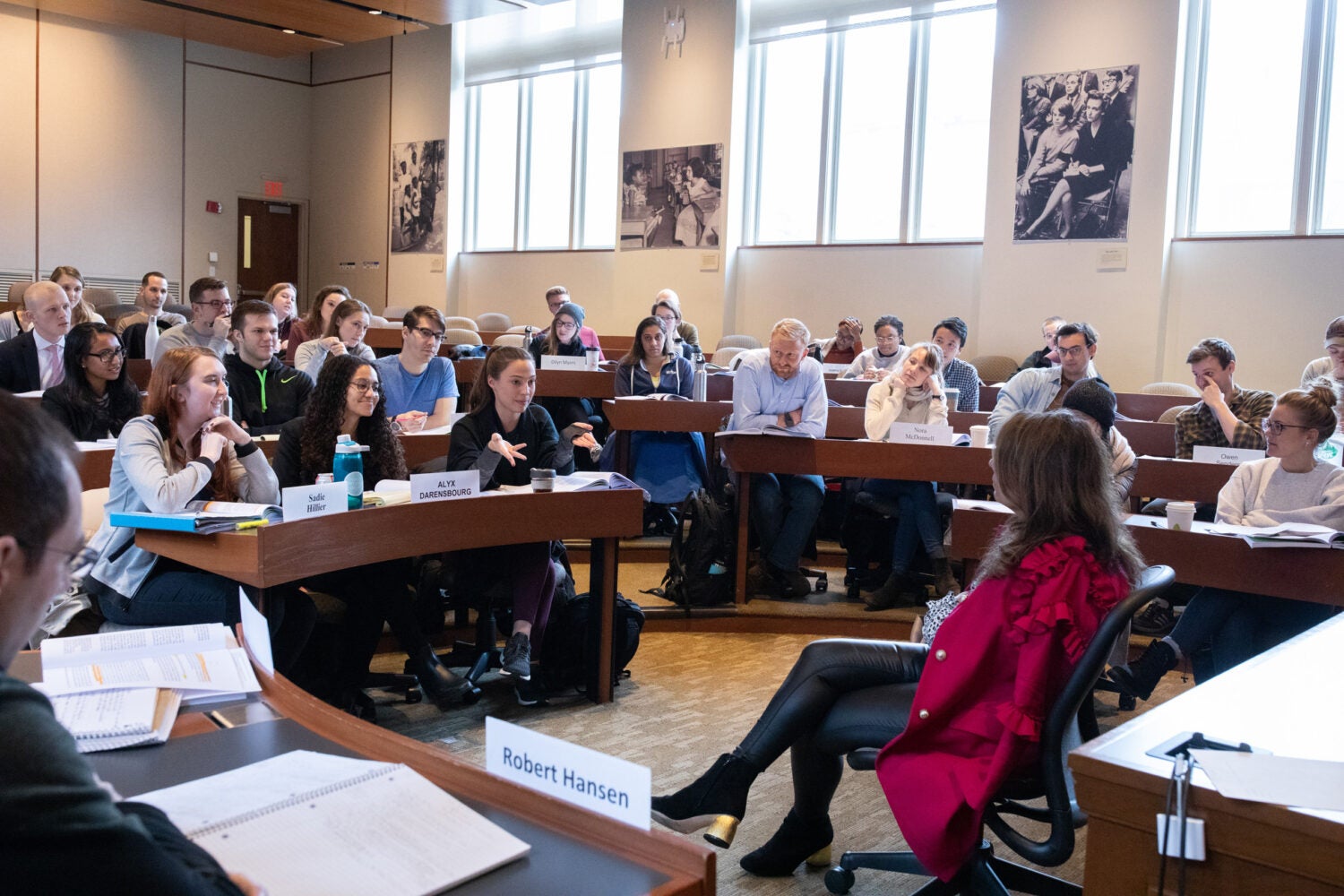
The First Year
Harvard Law School’s first-year curriculum provides students with a solid intellectual foundation on which to build their legal education, covering core principles and concepts, theory, and skills of legal practice and providing a thorough grounding in fundamental legal reasoning and analysis. First-year students take courses in civil procedure, constitutional law, contracts, criminal law, legislation and regulation, property, and torts, which collectively provide a foundation for understanding the common law tradition and governing structures of the U.S. legal system and the role of statutes and regulations within that system.
To bridge the gap between academic courses and the skills lawyers use in practice, all first-year students participate in the January Experiential Term. During this term, students enroll in one of several skills-based courses that emphasize teamwork, practical training, and self-reflection. First-year students also participate in a legal research and writing course, which includes the First-Year Ames Moot Court Program and other opportunities to practice the various forms of writing used in legal practice. During the spring term of the first year, students choose an elective based on their individual interests from a wide array of upper-level courses.
The first-year class is divided into seven sections of eighty students each. Faculty section leaders, generally senior faculty members who teach one of the section’s basic courses, provide guidance and support to the students in their sections and develop a program of extra-curricular activities related to the law.
In addition to section-based activities, during the fall term, students participate in first-year reading groups of 10-12 students. Led by faculty members, who also serve as advisors to the students in their groups, these ungraded groups allow students to explore an intellectual interest outside the scope of the foundational first-year curriculum. Topics are as diverse as legal responses to terrorism, regulation of climate change, Biblical law, detective fiction, conservative jurisprudence, artificial intelligence, and bioethics.
The Upper-Level Years
Seven optional Programs of Study – Law and Government; Law and Social Change; Law and Business; Law and History; Criminal Justice; International and Comparative Law; and Law, Science and Technology – developed by the Law School faculty provide pathways through the upper-level curriculum. The Programs of Study offer students guidance on structuring an academic program that will give them extensive exposure to the law, policy, theory, and practice in their chosen areas of focus.
The Law School encourages students to engage in their third year in a capstone learning experience: advanced seminars, clinical practice, and writing projects that call on students to use the full extent of their knowledge, skills, and methodological tools in a field to address the most interesting and complicated legal problems of today.
For more information about the J.D. Program, please see the Handbook of Academic Policies, Section I. Requirements for the J.D. Degree.
Semester Abroad
Harvard Law School students have the opportunity to study abroad through numerous exchange programs with law schools in other countries or at other top-flight foreign law schools of their choosing and receive credit toward the J.D.